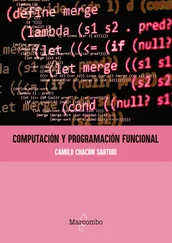Humans throw themselves into their tiny scientific breakthroughs to distract themselves from their finite condition, the way elderly women sew cross-stitch patterns on table linen to keep the aches and the pains and the approaching end at bay. And yes, they have achieved some modest results: for example, they can photograph bacteria, exchange kidneys, fly from one part of the planet to another, even if painfully slowly (the vapor trails their vehicles leave in the sky remind me of snail slime). But in order to arrive at those tiny conquests, they have wrought devastation everywhere, and put their future in question. And at every step of their so-called progress they conceal the consequences, the looming catastrophe.
It was obvious to me from the days when they began to employ their rudimentary telescopes and their Torricelli tubes that, just as the investigators of the Inquisition had perfectly understood, the aim of these scientists (their term) was to compete with me. So that one day they could take my place. If however these wise guys considered that a nuclear-powered rocket would take thousands of human lifetimes to cross a small-to-medium-size galaxy—not to mention clusters of galaxies—and that the temperature inside the most peaceable of stars is a couple million degrees above that of the water in which they boil their pasta, the pressure several million times greater than the cooker they use for artichokes, not to mention the fact that Andromeda is heading straight toward them at a speed of 430,000 miles per hour, well, they might be less cocky. Instead they’re convinced they are advancing by leaps and bounds, that the future holds amazing promise.
And yet, and yet. I must confess that scientific discoveries have always intrigued me. Does that seem strange? Well, I never claimed to be consistent. I enjoy watching matter and organisms be ground up and digested by human intelligence (however limited), seeing complex phenomena reduced to austere algebraic formulae, to gelid equations. As you can probably imagine, the various scientific disciplines with their high-sounding names offer me no novel discoveries—given that everything was created by me with my own hands , I’d be tempted to say if I didn’t mind sounding bombastic. I know full well what they are and what they contain, but still, I find them amusing. Paradoxically, I find that scientific laws , so awkward and insistently insecure, almost always have a graceful side. But above all it’s the enigmatic poetry of mathematics (which for me is just a vague approximation, a baby’s confused babbling) that I like.
Incongruous as it may seem, a god likes to keep up with his times, he’s interested in what’s new. You might even say the new galvanizes him, if the term, which makes me think of frogs’ legs twitching, weren’t so impossibly un-divine. There is really nothing new for a god; nope, it’s all as ancient as the beginning of time, given that past and future are one. Still, those human novelties stir him to stay informed. To review various notions that have grown a bit vague. It’s like opening at any random page a great encyclopedia written a long time ago. Anyway, I’ve always been curious, although that adjective needs to be purified of all its human sludge.
When I was young (allow me) I was crazy about animals; I could study them for years, for centuries. Damn, I’m great , I would think, impressed by how many I’d made and how different each was from another, with the strangest of habits and the most unimaginable particulars. And of course they’d change over time. They’d evolve , as the biologists say: these people see evolution in a pot of pasta cooking. Sure, it was all prescribed from the beginning, but there were undeniable coups de théâtre : fish that stood up and walked on dry land, big lizards that sprouted wings and began to fly, all kinds of stuff. I didn’t need that Darwin fellow with the chronic depression to point it out to me.
As I grow older, though (as it were), I have to say it’s the humans who interest me most. They bug me, that barbarous cult of technology of theirs and their contempt for the things that matter; they enrage me; I’m always thinking I must teach them the lesson they deserve. But I can’t stop looking at them. I have no idea what’s happening to me; it’s like a drug. (A god on drugs!)
A PALEOBEATNIK’S TRANSCENDENTAL SILENCES
On her way to work, the neo-Mendelian cow-sodomatrix stops to polish off a couple of cannoli. For the record: one, then another, then yet another (!); the Palestinian counterman’s gaze ricochets up and down, to her scrawny upper body, then to her plump lower half, in search of an explanation. Restraint, she finds, is hard to achieve when it comes to sex and Sicilian cannoli. When she arrives at her little corner of laboratory, it’s already almost noon and she’s somewhat uneasy. Everyone knows her scientific productivity is outstanding, but she never feels she’s accomplished anything. At this point one might mention the Judeo-Christian et cetera guilt complex, but it won’t be me to do it, God forbid.
That afternoon she can’t keep her mind on gene amplification. When she stopped for the cannoli, she had glanced at the newspaper and seen the new data on CO2 emissions. Golden boy is absolutely right, she thinks, the politicians, rather than heed the urgent warnings of climate science, are doing their best to stoke so-called economic growth, i.e. increase pollution and set up a huge own goal. The only way out is for science to find immediate, effective responses to energy and contamination problems. People had better get on it fast. Her bacteria-fueled battery, if she can get it working, will be a contribution.
Now it bothers me a little (maybe even that’s saying too much) that this girl, who’s in some ways insufferable despite her many sympathetic qualities, [14] I’m the first to admit I’m amazed, because at the beginning I didn’t notice these at all. However, you would be very much mistaken to think divine justice implies an unshakable, irrevocable verdict; to be just also means to evaluate elements previously overlooked, as happens in criminal justice when new evidence emerges.
still doesn’t realize she’s been hypnotized by the paleoclimatic Casanova. I’m tempted to warn her (and yes, I can find a way, I assure you). However, I very rarely interfere in such matters. I mean, I’m no Aphrodite or Cupid, I’m a proper monotheistic deity with all that implies in terms of status and decorum. I’d never have a moment’s peace if I got mixed up in such chicanery; they’d all come begging and promising me this or that for some petty sentimental or sexual favor. Whatever happens I must safeguard my transcendental dignity.
Exiting the laboratory, Ms. Einstein zigzags across town on her bike, zipping in and out of the lanes of traffic with infidel bravado. Another quick voluptuary stop—two cream filled cornetti—and she’s on her way toward the hills to the south. The hideously overbuilt plain behind her, she coasts over gentle dales pocked with neo-oligarchic villas, heads down the narrow valley inhabited by the dropouts, you might even say the wasted . When she gets there she parks her bike by her mother’s friend’s house (house: a euphemism). He’s in the shed next to the chicken coop, head deep in the engine of a decrepit Caterpillar tractor. His orange overalls are stained with oil, and his sparse hair, beginning at the sides of his head and at the nape of his neck, is gathered into a long, scant ponytail. After she has thoroughly cuddled the two big dogs and the small one, the sex maniac—the dogs make a big fuss when she comes and squabble for pole position— she approaches him and makes a pecking gesture with her long bird’s neck. Then her purple locks, too, disappear into the Neolithic engine.
Читать дальше












